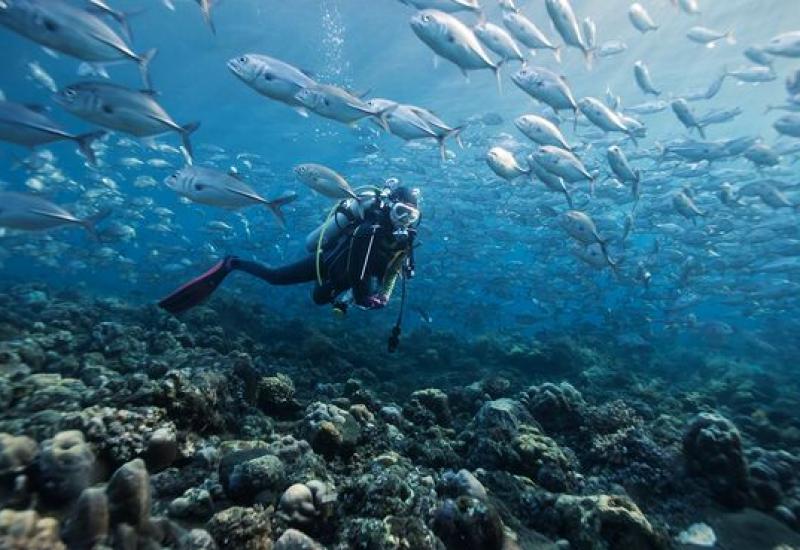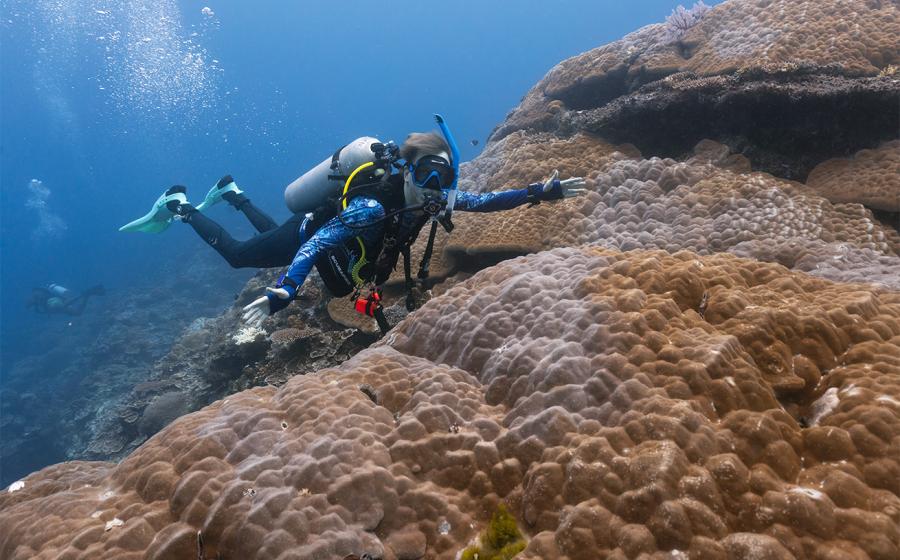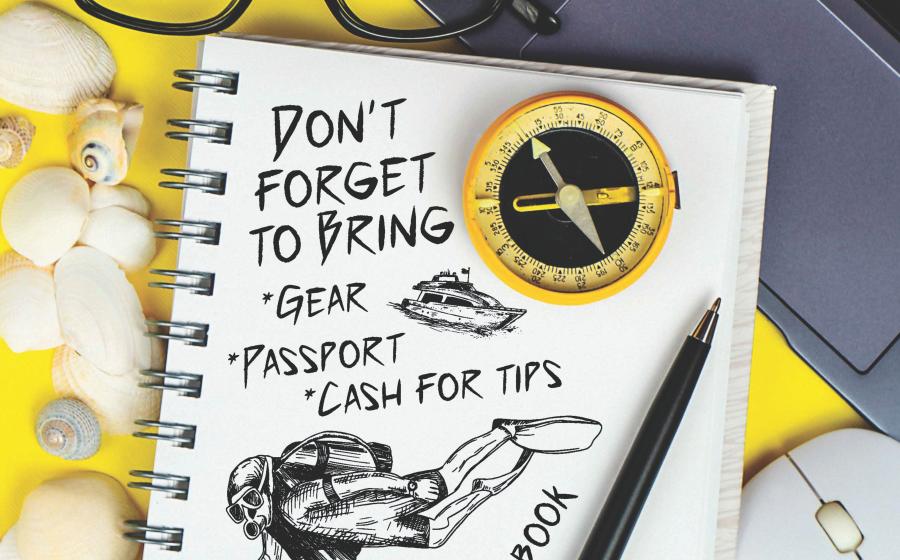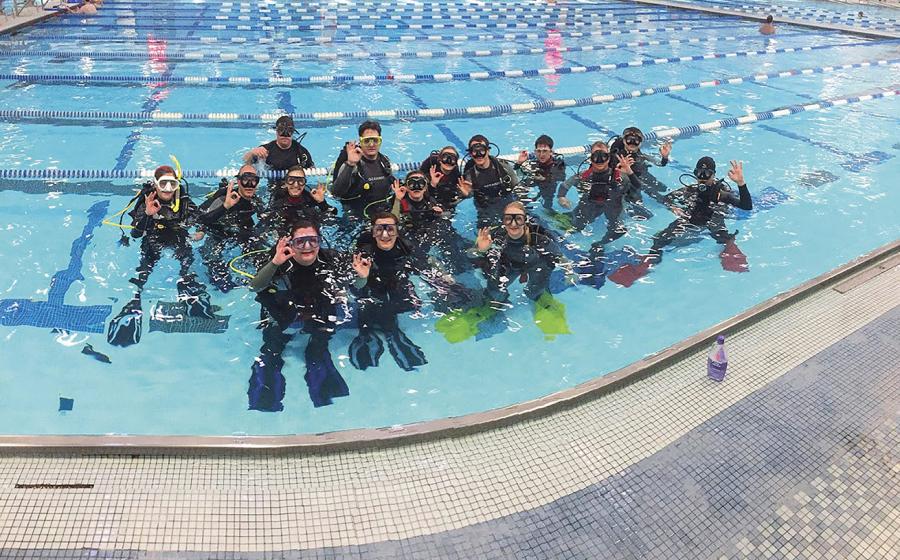Dive Hacks: 17 Scuba Gear Tips and Tricks from the Pros
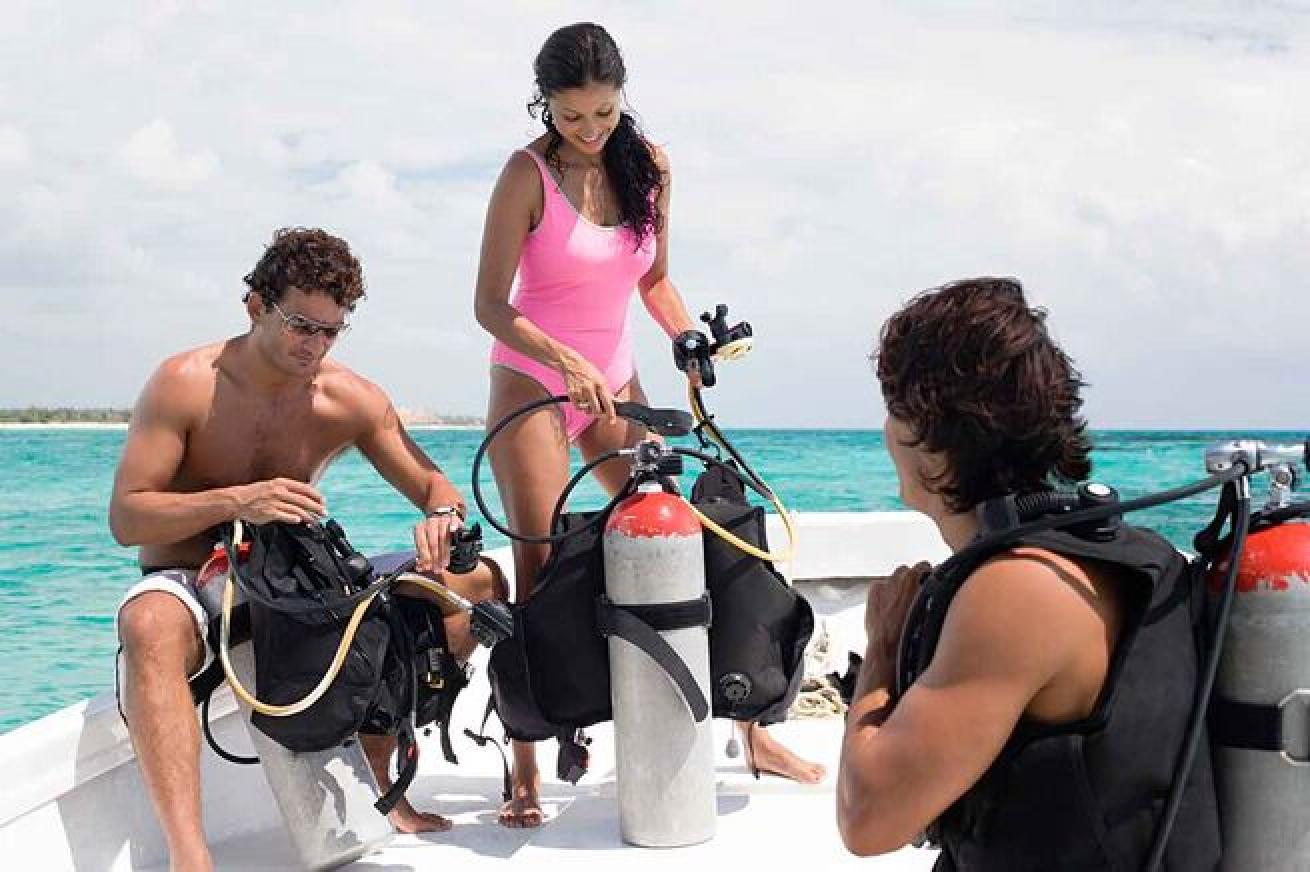
iStockphoto"Get your BC wet before setting up on your tank. You’ll get a more secure attachment."
Scuba diving gear is amazing — it's our link to the underwater world. But anyone who's done their fair share of diving knows that it can often be unruly or a pain to set up — and every diver has come up with their own hacks to deal with it. We asked several dive pros for their scuba gear tips and tricks.
1. If you don’t own a regulator, buy a mouthpiece that is comfortable for you, so you can switch it out with the rental one if it doesn’t suit you. — Doris Pfister, Caradonna Dive Adventures group agent and dive instructor
2. Use gel baby oil to make it easy to wiggle into a thick wetsuit when doing multiple dives. Saves your knuckles from becoming raw at the end of the week. — Jenny Collister, owner, Reef & Rainforest, Dive & Adventure Travel
3. Baby shampoo also works to help you don your wetsuit. Or use plastic bags to put it on. Place your hand or foot in a plastic bag so that they can slide right through. — Sport Diver Editors
Related Reading: How to Fold a Drysuit
4. Buy travel gear. Most scuba gear brands make compact and lightweight gear. Try to place gear and clothing in one carry-on. Don't over pack. Carry your regulator, camera, dive light and passport in your backpack. It saves you so much money and time to not have to check gear at the airport – and it will never get lost. — Rocio Gajon, PADI IDC staff instructor
5. Going from altitude to sea level can create an issue for a camera housing and some dive lights if they are left sealed (you may not be able to open them by hand). Toss them in a cooler of ice or fridge for 15 minutes and they will open with ease. — Scott Taylor, owner, A-1 Scuba, Littleton, Colo.
6. Service your gear before your trip. Don’t wait to check it at the dive destination and risk missing out on great dives. — Augusto Montbrun, Dive Operations Manager, Buddy Dive, Bonaire
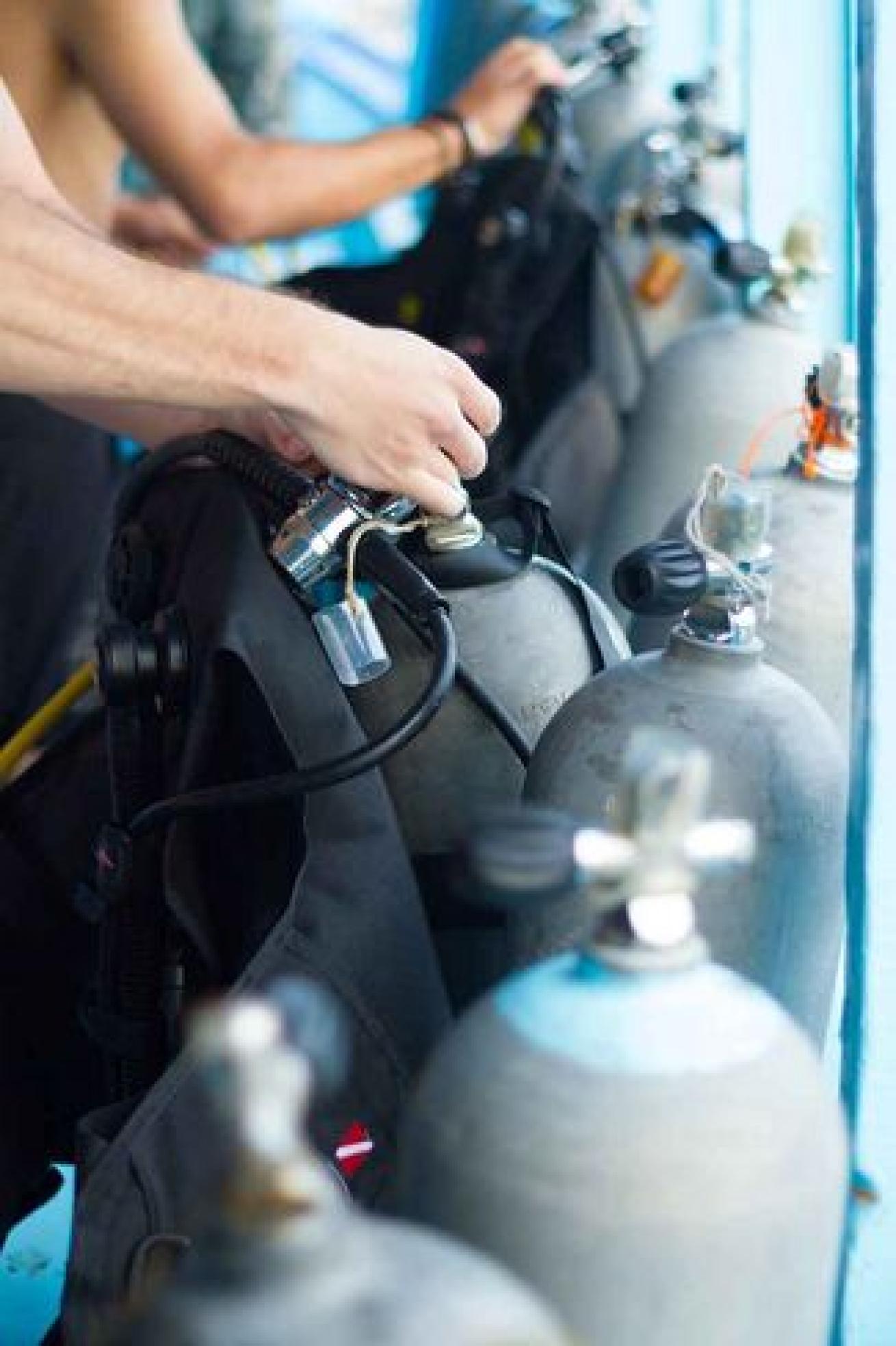
iStockphoto"Service your gear before your trip. Don’t wait to check it at the dive destination and risk missing out on great dives."
7. Fin tip broken? Cut the other one until they are the same length and continue using (works better with longer fins). — Byron Kay, owner, Kona Honu Divers, Hawaii Island
8. Zip ties can fix almost anything, so pack plenty of extras. — ST
9. Write your name on all your gear (use a silver Sharpie marker on black items) or affix waterproof stickers with your name written on them. Many divers and photographers have the same gear, and this prevents getting items confused. — Alex Mustard, professional underwater photographer
10. Get your BC wet before setting up on your tank. You’ll get a more secure attachment. — SDE
11. Coat your dive knife with a layer of car wax or silicone lubricant to prevent rust. —SDE
12. Replace your buckle-style fin straps with quick-donning-and-doffing spring straps. You’ll appreciate them when getting back on the boat in rough seas. — SDE

iStockphotoPack for the certain type of diving you'll be doing.
13. Keep it simple. Think about the kind of diving you will be doing. Wreck diving, but not planning on penetration? Then leave the high-end wreck reels at home and take a finger spool instead. Doing some fun shore night dives? No need for canister lights here. Think through your plan, and then pack. It will save you time, stress and excess baggage fees in the end. — Robert Currer, PADI IDC staff instructor
14. Tired of your mask strap entangling your hair? Replace it with an easy-to-use, super-comfortable neoprene strap. — SDE
15. Check the destination’s average water temp for the season you are visiting. Make sure your exposure protection is adequate. Bring a few, easy-to-pack extras, like a vest and hood, to layer on if the water is colder than you expect. — SDE
Related Reading: How To Save a Flooded Dive Light
16. Out of defog? Don’t use spit as it can spawn bacteria growth. Baby shampoo is a better option. Water it down 50/50 and keep in a small spray bottle. — SDE
17. After the dive, head back to the same seat you occupied when you geared up. It’s common boat courtesy to stay in the same seat on the bench and will make breaking down your gear easier as you’ve stashed your boat bag under your spot. — SDE

